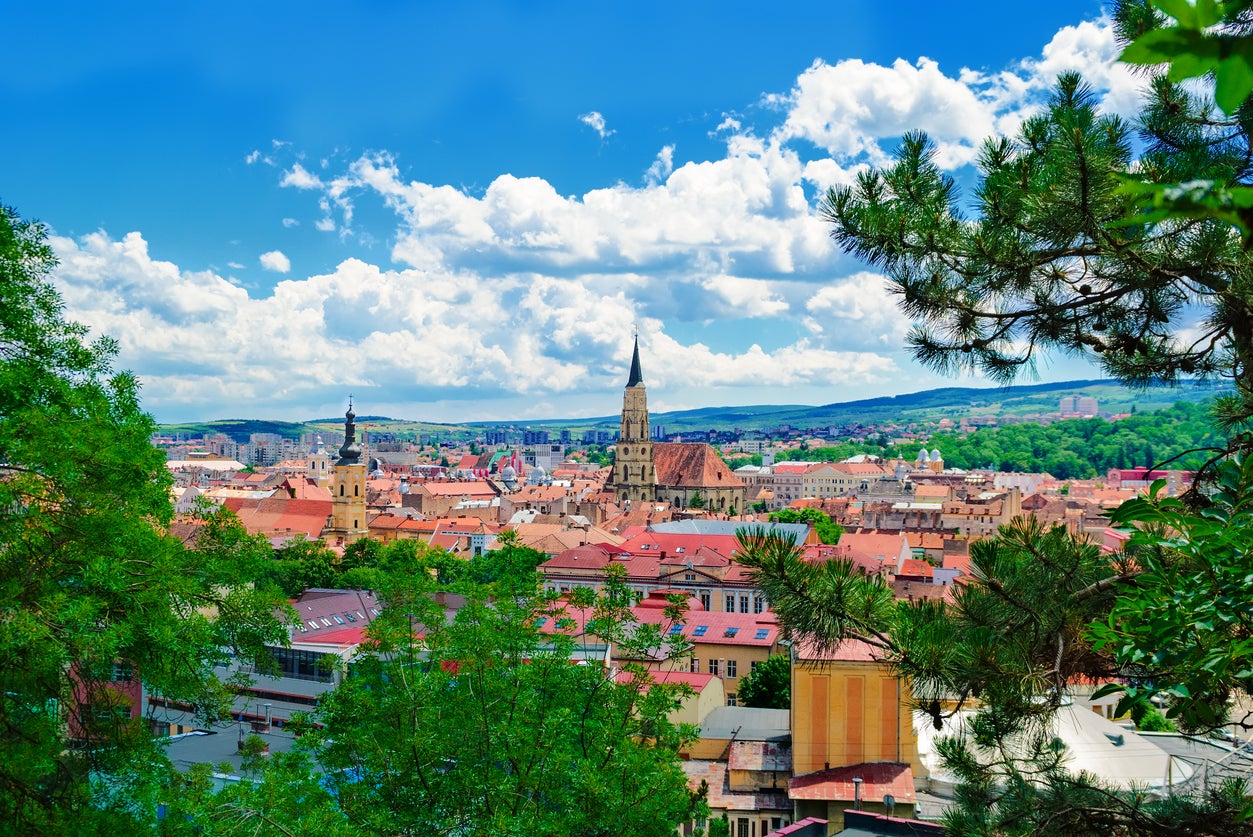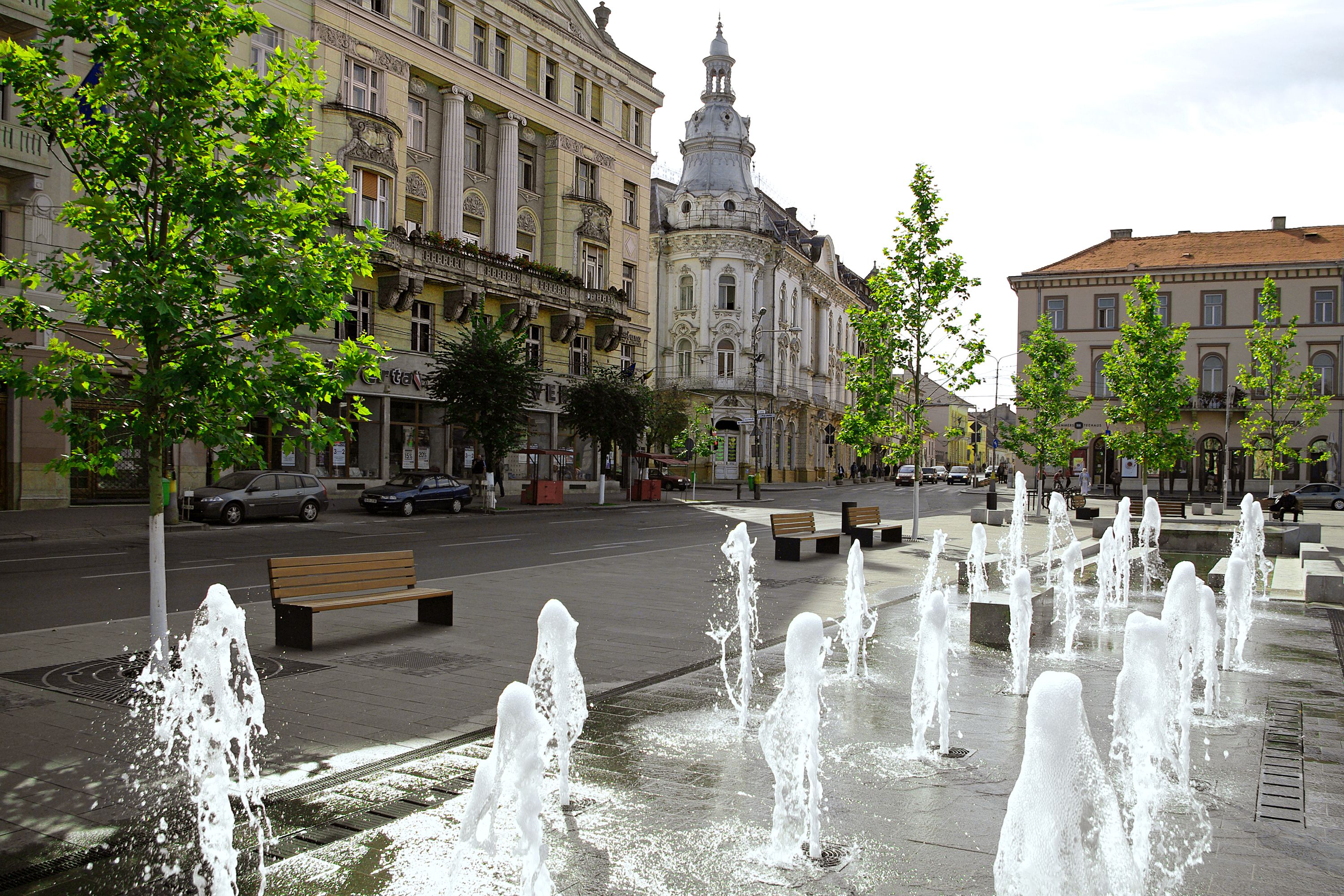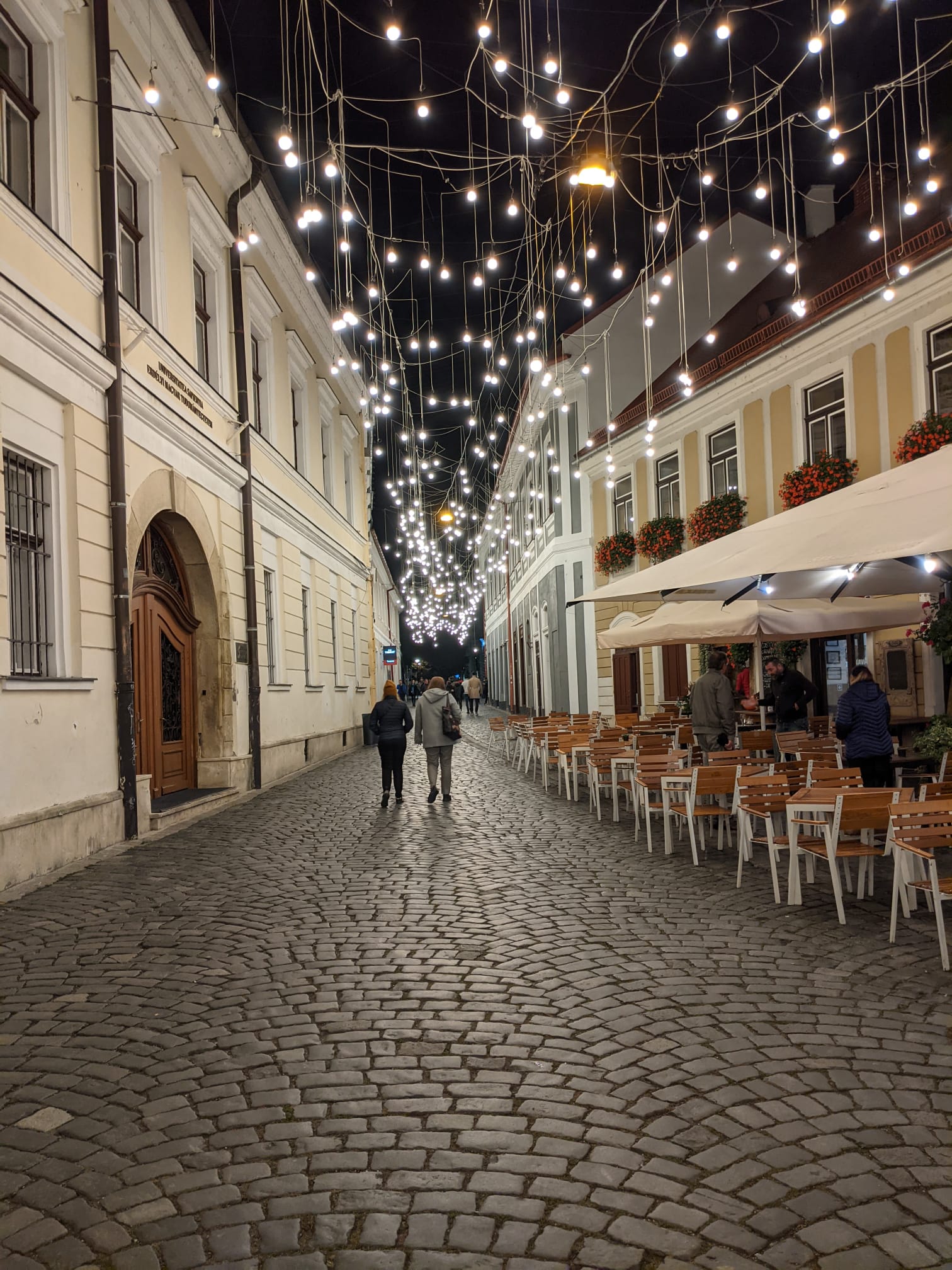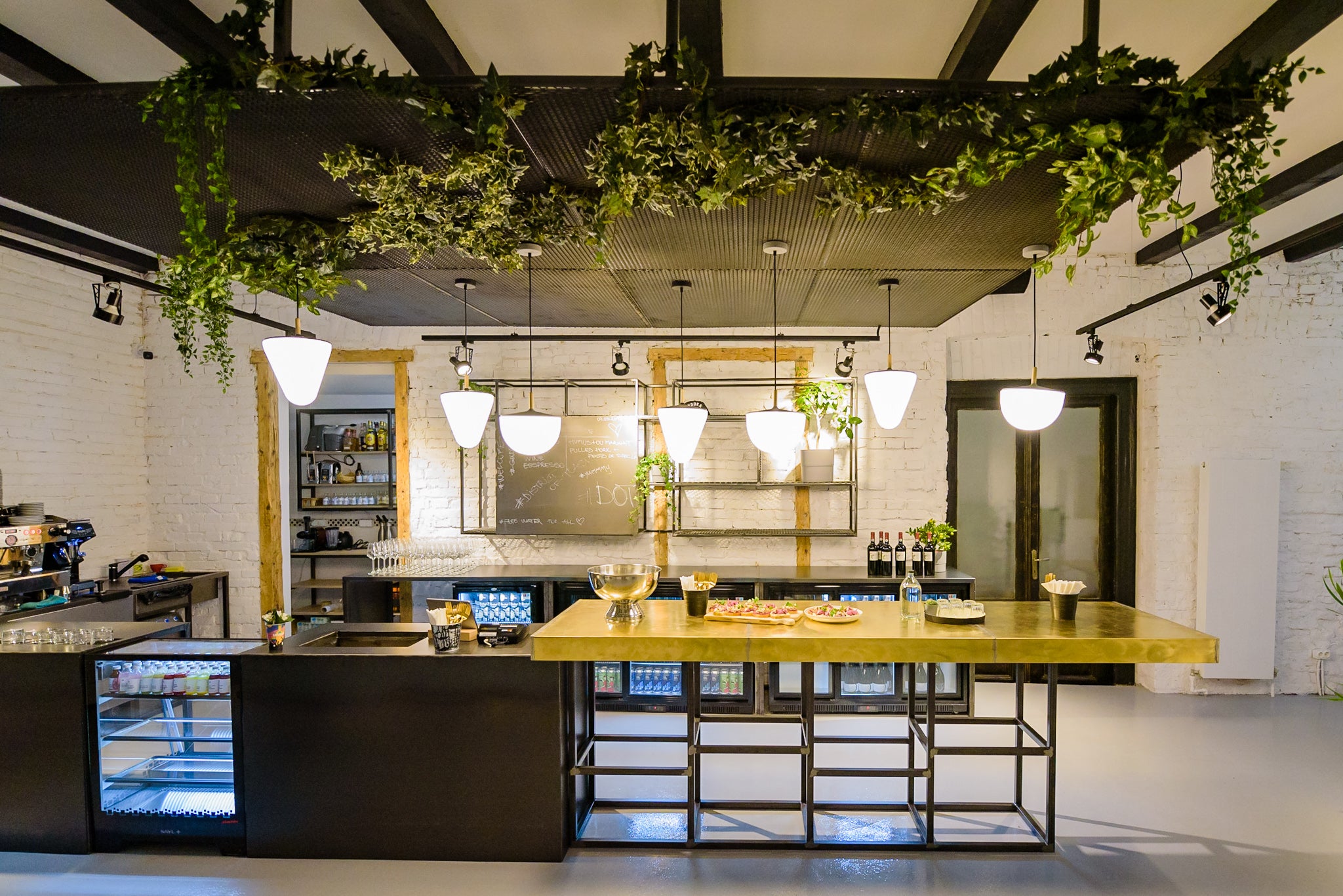The Independent's journalism is supported by our readers. When you purchase through links on our site, we may earn commission.
Cluj city guide: Where to eat, drink, shop and stay in Romania’s buzzy student hub
The Transylvanian capital is a pocket-sized gem with a pretty medieval centre and a lively festival calendar, says Stuart Kenny

Cluj-Napoca is best known as the capital of Transylvania – but on the ground, it’s more commonly referred to as Cluj. Napoca was the name of the Roman citadel that sat here some 2,000 years ago, and saying “Cluj-Napoca” out loud feels a little like calling your mother by her full name over a coffee.
Most people who hear “Transylvania” think “Dracula”, and the region is home to numerous remarkable medieval castles, if not bloodthirsty counts. It sits in central Romania, and beyond the mythology it’s also where you’ll find the southern Carpathian mountains – a wilderness where bears, bison and wolves still roam free. Add in some charming cities, and the fact that the pound goes a long way in Romania, and this is a true, off-the-beaten-track adventure.
Today, Cluj’s centre is home to a lively old town and, far from being cluttered by vampire tat, the streets here serve the people. Think trendy restaurants hidden down alleyways, and busy bars on narrow, cobblestone streets that light up at night. Home to the largest university in Romania, this is a student city where culture thrives, and sweeping views out over the Somesul Mic river, along with Baroque and Gothic architecture, are only a short walk away. If you’ve got a spare couple of days to kill either side of a trip to Dracula’s castle or the nature beyond, you can count on Cluj to impress.
What to do
Explore Unirii Square and the Old Town
There are plenty of day trips from the city to Bran Castle (often called Dracula’s castle), and to various other spots in the Carpathian mountains, but don’t mistake Cluj for a Transylvanian bus terminal. The more southerly Brasov, another beautiful city, is really the gateway to Bran Castle.
Once you hit the medieval Unirii Square in the centre of Cluj, you’ll be in no rush to leave. The gothic St Michael’s Church is guarded by a dramatic monument honouring Matthias Corvinus, the 15th-century Hungarian king. The house Corvinus was born in lies just beyond, on the cobblestones of Strada Matei Corvin. On the right of Unirii Square is the National Art Museum (8 lei/£1.30), in the old Banffy Palace, and to the left are various cafes with outdoor seating. Peek down Strada Episcop Ioan Bob, hidden between the seating, and you may see an old-fashioned bookseller setting up shop.

Get panoramic hillside views
Leaving the old town, cross the Somesul Mic river and you’ll find yourself at the edge of Cetatuia Hill. A few hundred steps uphill, you’ll be looking out over the entirety of Cluj, which looks a whole lot greener from above than from on the ground. The view gives you an idea of how the city sits and slopes, with houses rising steeply on the surrounding hills (something you’ll know if you’ve had to climb one to get to your hotel). To your left and directly below is the Old Town, and to your right you’ll get a magnificent view of the gentle curves of the Cluj arena, home to CFR Cluj and one of the most beautiful and distinctive football stadiums in Europe.
Extend your walk via the Elisabeta Bridge for a stroll around Simion Barnutiu central park.
Indulge in the art
The National Museum is a must-visit for classical art fans, but more on the cutting edge side is Fabrica de Pensule – a contemporary art network that (in non-Covid times) boasts a busy calendar of concerts, talks, exhibitions, performances and workshops. For regional art, visit the Galeria Quadro, which focuses on modern art from Transylvania and the Eastern Bloc.
If the timing of your visit is flexible, try to make it coincide with one of Cluj’s many artsy festivals. The Untold dance festival (from €199/£167 for a four-day pass) brings in the biggest names in EDM; the Electric Castle musical festival (from £110 for a five-day pass) is half an hour away at Banffy Castle, with Gorillaz, Twenty One Pilots and the Deftones headlining in 2022; while Jazz in the Park (tickets not yet on sale for 2022) was voted Europe’s best small festival in 2019. The Transilvania International Film Festival, set for June, is also Romania’s first feature-film festival.

Where to stay
ApartHotel Gutinului is a quirky, recently renovated block of flats less than 10 minutes from the city centre. It’s affordable, has reliable wifi, and each room is themed on a different country. You could find yourself sleeping beneath a Moroccan arch or next to walls covered in Japanese iconography. Doubles from £42, room only. cazare-cluj.ro/despre-noi/
Zen Hostel is slap bang in the city centre. Full of vibrant murals and homemade furnishings, the space feels alive. That homespun aesthetic can mean you’ll be sleeping on a mattress stuck on top of a few wooden crates, of course, but it’s comfy enough. There are a couple of very sociable common areas, too – for relaxation, head straight to the hammocks. Doubles from £25, room only. zenhotels.com
For luxury, head to Hotel Platinia (Doubles from £167, B&B). A new five-star hotel, the vibe is modern and stylish, with lots of wood and space used wisely. Basically, it’s fancy – in a cool way. hotelplatinia.ro/en
Where to eat
Grab brunch from waste-free cafe District of Toast. The halloumi sandwich is mouth-watering, the omelettes come stacked with toppings, and the bread comes from the local Dioszegi bakery. Or, if you’re missing Greggs, there are plenty of hatches around the city selling pastries to go.
For traditional cuisine, head straight to Roata. If you find yourself down a residential side street and think you’re lost, then good – you’re almost there. Try the varza (cabbage) a la Cluj. A minute down the road you’ll also find Jaxx, a rock-themed joint perfect for a greasy bite and a beer.
For a feast with a view, check out the penthouse Klausenburger, a craft brew joint accessed via a lift next to the Centrul shopping mall. It’s a modern space with bar food and more traditional fare – the goulash is wholesome and the views from the rooftop terrace are far-reaching.
Samsara Foodhouse offers a huge menu of vegan and veggie food. A bare-brick wall at one end and an olive tree in the centre hint at the earthy vibe. Try the roasted pumpkin or parmigiana di melanzane.

Where to drink
Meron will sort out your caffeine fix. They sell coffee freshly flamed at their very own roastery in Transylvania. Simple and stylish, the focus here is on the drinks. Meron rotates its coffee selection once a month, and the staff are friendly, chatty, and on hand to help should you need to ask what the heck a V60 coffee dripper is.
When it’s time for a beer, head over to the eclectic Insomnia Cafe. There’s a colourful outdoor drinking area, and inside you’ll find all sorts of psychedelic artwork and wonky decor. The space actually used to be an art gallery, and it still shows today.
Another option for a lively evening is to head to Shto Bar, a tightly packed drinking hall where the conversations flow as quickly as the beer does. Another solid tactic is simply wandering the streets of the Old Town at night and picking out whichever cosy bar takes your fancy.
Where to shop
There are various shopping malls in Cluj. The newest in town is the Platinia shopping centre. A recently renovated site, now open week-round, you’ll find everything here, from international brands like Anna Lafaet to Romanian brands such as Urma (fashion) and Carturesti (books).
For more whimsical finds, head over to the Saturday morning Oser flea market (Strada Bobalnei 65), where you’ll find food, antiques and bric-a-brac galore.
Architectural highlight
A 360-degree spin in Avram Iancu Square lends you views of two distinctive architectural styles: the neo-Baroque form of the National Opera House and the Dormition of the Theotokos Cathedral, which combines Renaissance and Byzantine architecture in the Romanian Brancovenesc style. The elegant arches and facades of the former are topped by statues of Terpsichore, the muse of poetry and dance, and Thalia, the muse of comedy and theatre. The dome of the cathedral is inspired by Istanbul’s Hagia Sophia.
Nuts and bolts
What currency do I need?
Romanian leu (though euros are sometimes accepted).
What language do they speak?
Romanian.
Should I tip?
10 per cent.
What’s the time difference?
Eastern European standard time – GMT+2.
How should I get around?
The best way to explore is on foot, but the modern network of electric buses only costs 2.5 lei (40p) a trip. Traffic can get bad.
What’s the best view?
Cetatuia Hill.
Insider tip?
Hit up ArtCrawl for a detailed tour of the contemporary art scene with a local who knows the spaces (€20 per person). But avoid Sundays, when several galleries are shut.
Getting there
Trying to fly less?
You could work your way across Europe to Romania by train, crossing through Belgium, Germany, Austria and Hungary in the process (great potential for a multi-stop tour). Take the Eurostar to Brussels, from which an ICE train serves Frankfurt, then Nuremberg. Here you can change for Vienna, where you can pick up a train through Hungary to Cluj.
Fine with flying?
Wizz Air and Blue Air both have flights to Cluj from the UK.
Join our commenting forum
Join thought-provoking conversations, follow other Independent readers and see their replies
Comments
Bookmark popover
Removed from bookmarks